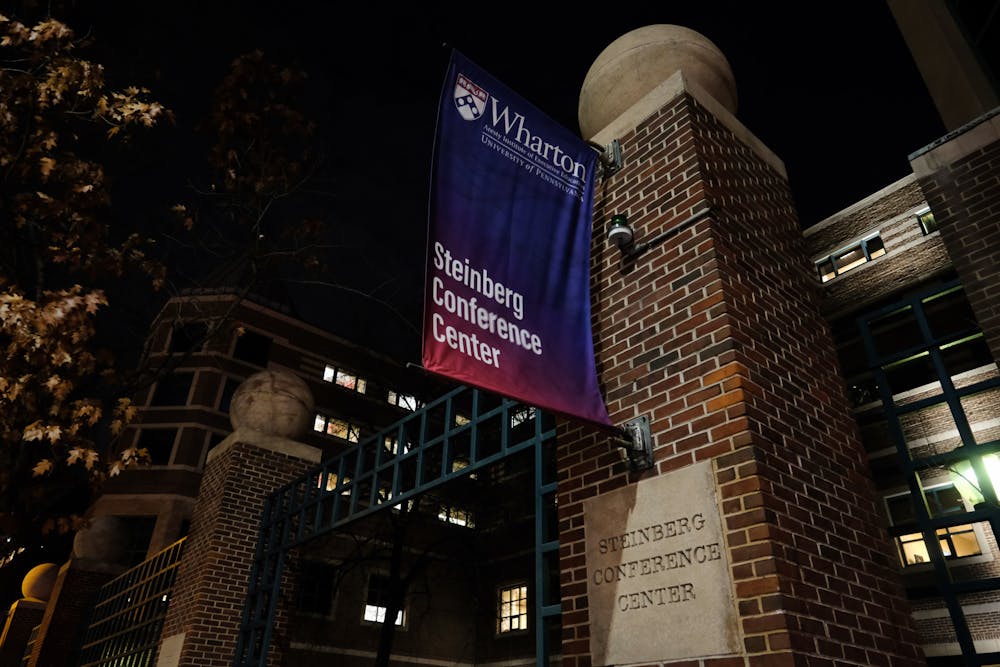
A former employee of Penn’s Steinberg Conference Center filed a lawsuit against the University on Oct. 28 alleging discrimination, retaliation, and unlawful termination.
The suit, brought by plaintiff Yolanda Davis, alleged that the University violated Title VII of the Civil Rights Act of 1964 by terminating her employment on the grounds of disability and race. It further claimed Davis was retaliated against for reporting her disability and requesting accommodations, and that Davis suffered disparate treatment, retaliation and a hostile work environment while employed at the Center.
The lawsuit alleges that the University violated the Civil Rights Act, 42 U.S.C. § 1981 — a federal law guaranteeing the right to make and enforce contracts regardless of race — and the Americans with Disabilities Act.
A University spokesperson declined a request for comment for this piece. A Wharton School spokesperson and Davis’ lawyer both did not respond to requests for comment.
The Steinberg Conference Center is located at the intersection of 38th and Spruce streets and houses Wharton Executive Education. The Center offers a full-service hotel and dining room for participants to use during their programs at Wharton. During her employment at the Center, Davis served as a laundry attendant and custodian, according to the filing.
In 2023, The Daily Pennsylvanian reported that multiple current and former employees of the Center alleged mistreatment from hotel leadership and a toxic workplace environment. At the time, Davis told the DP about alleged acts of mistreatment by her supervisor, Yani Shafi, and said that she sent complaints to Penn’s Division of Human Resources, the United States Equal Employment Opportunity Commission, and Teamsters Local 115.
According to the lawsuit — which stated that the plaintiff is Black, African American, and Muslim — Shafi subjected Davis to “disparaging comments” based on her race. It also claims that Shafi “singled [Davis] out and treated her differently” from other employees because of her disability and race. The suit also alleged that Shafi “made it clear to [Davis] that she did not want any black, non-Hispanic individuals in the department” and targeted other Black employees.
The lawsuit further claimed that Shafi has a close relationship with Fred Kashow, the representative for Davis’ union, which resulted in Kashow disregarding Davis’ reports about Shafi’s behavior. It claimed that, while Davis filed multiple grievances in relation to her mistreatment, all of the grievances were dismissed.
It also claimed that Davis’ employment was terminated because of her disability and race and in retaliation for reporting her disability and requesting accommodations — invoking rights protected in the Family and Medical Leave Act and ADA. It said that Davis suffers from chronic anxiety and that her anxiety qualifies as a disability under the ADA because it “substantially limits one or more major life activities including, thinking, concentrating, sleeping, and eating.”
The suit alleges that the defendants denied Davis’ request for reasonable accommodation and medical leave in accordance with the Family and Medical Leave Act because they “did not consider chronic anxiety a real medical condition.”
The suit requested that a punitive damages hearing be scheduled in connection with defendants Shafi, Kashow, and three other Penn employees.
Davis previously filed a charge of discrimination against five individuals — including Shafi — with the Equal Employment Opportunity Commission. The charge of discrimination was dismissed on July 29, according to the lawsuit.
The Daily Pennsylvanian is an independent, student-run newspaper. Please consider making a donation to support the coverage that shapes the University. Your generosity ensures a future of strong journalism at Penn.
Donate








